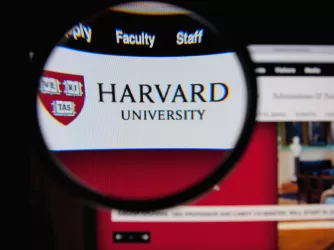Table of Contents
Halloween Costume E-Mail Surfaces Deeper Concerns about Freedom of Speech at Northwestern University
Last week, Northwestern University Dean of Students Burgwell J. Howard and other university actors sent an e-mail to the Northwestern community encouraging students to display sensitivity in their Halloween costume choices. This e-mail was a reaction to the outrage sparked by two white students dressing up in "blackface" last year.
Howard provided students with guidelines to determine if their costume is "insensitive."
- Wearing a funny costume? Is the humor based on "making fun" of real people, human traits or cultures?
- Wearing a historical costume? If this costume is meant to be historical, does it further misinformation or historical and cultural inaccuracies?
- Wearing a ‘cultural' costume? Does this costume reduce cultural differences to jokes or sterotypes?
- Could someone take offense with your costume and why?
Unfortunately, these guidelines likely proved difficult to follow for most students. For example, if one's costume can't "make fun" of real people, human traits, or cultures, then what can it "make fun" of—trees? But wait, even a tree suit could fail the final guideline if an environmentalist took offense at one's negative portrayal of local flora.
As ridiculous as these guidelines may be, there's nothing wrong from a free speech perspective when a dean urges students to exhibit sensitivity. In fact, we at FIRE have always asserted that dialogue is the most constructive way to combat insensitivity. The problem is that Northwestern's "red-light" speech codes would allow Howard, or any other administrator, to easily move from urging sensitivity to mandating it under pain of punishment.
For example, in Northwestern's Student Handbook, the "Civility, Mutual Respect, and Unacceptability of Violence on Campus" policy reads:
Each community member is expected to treat other community members with civility and respect, recognizing that disagreement and informed debate are valued in an academic community.
Unacceptable behavior. Demeaning, intimidating, threatening, or violent behaviors that affect the ability to learn, work, or live in the University environment depart from the standard for civility and respect.
It is not difficult to imagine a costume being punished as "demeaning," "intimidating," or "threatening" under this policy. Similarly, it could be argued that wearing any of a wide variety of costumes would constitute a bias incident under the "Hate Crimes and Bias Incident" policy in the Student Handbook.
[A] bias incident is defined as an act of conduct, speech, or expression to which a bias motive is evident as a contributing factor (regardless of whether the act is criminal).
...
Sanctions will be imposed for students found to have committed bias incidents or hate crimes.
For readers skeptical that an insensitive Halloween costume could result in punishment, remember Johns Hopkins University's punishment of student Justin Park for posting an offensive Halloween party invitation on Facebook a few years ago.
On a positive note, Howard and Northwestern President Morton Schapiro have both made statements supporting free speech. However, until Northwestern's speech-restrictive policies are revised and off the books, FIRE will continue to view administrative e-mails discouraging certain forms of expression as potentially dangerous to free speech.
Recent Articles
FIRE’s award-winning Newsdesk covers the free speech news you need to stay informed.

Revoking Harvard’s tax-exempt status will threaten all nonprofits

Grandpa’s advice for the new wave of American censors

FIRE POLL: Only 1/4 of Americans support deporting foreigners for pro-Palestinian views
